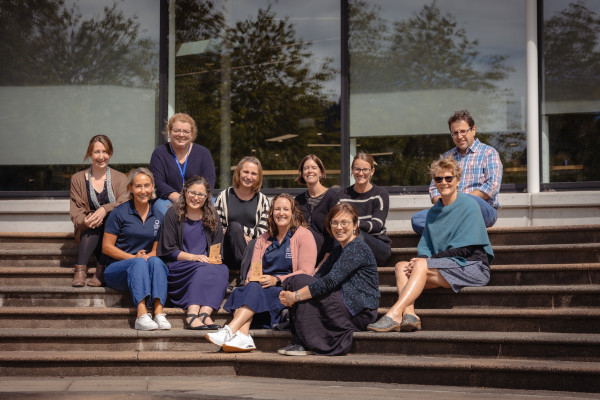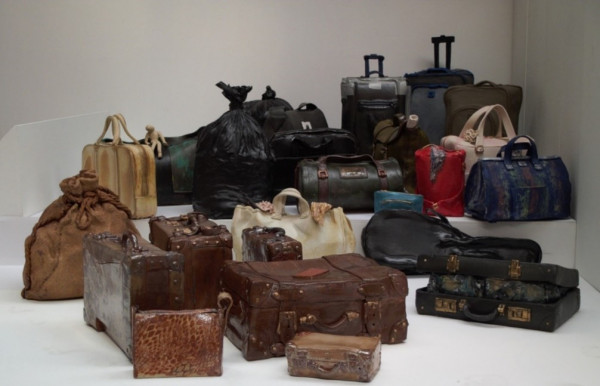- Tūhono home Hoki ki Tūhono
-
- Staff Directory
- Chief Executive Office Auckland International Office Corporate Services Finance Campus Services Functions and Catering Information Systems and Support Marketing, Communications and Engagement Learner Journey Academic Registry International Learner Services Te Punaka Ōwheo
- Learner Experience Academic Excellence Central Campus College of Community Development and Personal Wellbeing College of Engineering, Construction and Living Sciences College of Health College of Work Based Learning Open Education Resource/OERu Research and Postgraduate Studies Te Maru Pumanawa | College of Creative Practice and Enterprise
- Māori Development and Kaitohutohu Office People, Culture & Safety People and Culture Childcare Centre Te Ama Ako | Learning and Teaching Development Wellbeing and Safety Auckland Staff Directory Executive Office Academic Corporate Services Marketing and Business Development Human Resources Campus Quality and Programme Development
-
 Our people make a better world
Our people make a better world
We build the capabilities of individuals, organisations and communities and help them to realise their potential.
Staff Directory
-
- Tools
- Academic Integrity Declaration Form AIC Applications Dashboard Approved Programmes Approved Programme Fees Centralised Assessement Repository Chemwatch CMS - Tūhono & StudentHub updates Course Evaluation and Surveys CRM Applications CRM customer service hub Delegations policy/process Disability and Neurodiversity Dynamics 365 (CRM) EBS Ontrack EBS Report Email Security Personal Portal Employment Matters / Solarworkplace / Performance Reviews eTaxi eTV
- Financial Variance Reporting Hidden Disabilities Sunflower programme FCM travel intranet InPlace International entry requirements Knowledgebase articles Learner Capability Learner Support Dashboards Linkedin Learning Log a job with Marketing Login as an applicant Microsoft 365 Moderation App Moodle OP Docs OP Docs - Publishing OP Image Libraries Performance Excellence Portal Product Evaluation Panel
- Policy Library Privacy Programme and Course Design and Development Qualtrics XM RDS Remote Access Support Portal Research Database Robertson Library Staff FAQs about Graduation Status of Programmes Student Hub (Kāpehu demonstration view) Study Abroad info for learners Tūhauora I Wellbeing resources Uniprint Vault Webexpenses Auckland Tools
-
 Vault
Had an accident or near miss?
Log it here
Vault
Had an accident or near miss?
Log it here
-
- Communities
- Community AI Steering Committee Ally Network EBS Community of Interest EdTech Champions Health & Wellbeing Research Internal Evaluation Neurodiversity Professional Team Professoriate Proud@OP Student Support Website Advisory Group Web Champions Working under the Rainbow Project Learner Capability Trade Training Centre
- Committee Academic Committee Animals@OP Diversity and Equity Doctor of Professional Practice Committee Kaunihera Whakahaere - Leadership Council Internal Evaluation Learning & Teaching Leadership Team Library Committee Mental Health and Wellbeing Advisory Group Otago Polytechnic Board of Directors Pastoral Care Code Committee Programme Approvals Committee Research and Postgraduate Committee Research Ethics Committee Staff Subcommittee
- Think Tanks Mātauraka Our learners achieve educational success Pūtea Our financial success Tākata Our people, our team, our community Tiriti Our active commitment as a Treaty partner Tūroa Our commitment to be a sustainable and responsive organisation
-
 Create a community
Create a community
Do you have a community, committee or project that you'd like represented here?
Communities
-
- About OP
- Keep up to date All news All events All notices All blogs Share your info Create a news article Create an event Create a notice Create a blog
- Community and Partnerships Alumni and friends Education Foundation Operational information Academic calendar 2025 Academic calendar 2026 Current vacancies Dunedin campus map Our policies Topical FAQs
- Who we are Commemorative sites Māori Strategic Framework Our history Our strategic priorities Pasifika Strategic Framework (2025-2030) Vision and Values Working for us OP job opportunities Wellbeing Calendar Working at OP
-
New Zealand: 0800 762 786
contact us
International: +64 3 477 3014
Heavy luggage: Climate change cultural identity and art activism
Author: Debbie Fleming
Supervisors: Jane Venis
28 February 2020
Fleming, D. J. (2020). Heavy luggage: Climate change cultural identity and art activism. (Unpublished Master's dissertation, Dunedin School of Art, Otago Polytechnic).
Abstract
“Reality is that which, when you stop believing in it, doesn’t go away.”― Philip K. Dick, I Hope I Shall Arrive Soon.
Heavy Luggage is a dynamic ceramic installation. It is inspired by one of the most important political and social dilemmas of our time, climate change; its impact on our cultural identity and highlighting the role of art activist to open dialogue in as many languages as is possible. An array of bags ranging from the period of the industrial revolution through to the contemporary have been presented as if in a waiting room, appearing abandoned, each having its own narrative, language and purpose to express the needs and experiences of those impacted by the dilemma of climate change.
They are connected yet isolated. They beg the viewer to consider the reality of each piece and its place in time. From the blackness of the ceramic heads within the briefcases to the nostalgia of a utopian time past, the luggage or baggage concentrate on examining the ephemeral moments that have culminated in influencing our present-day experiences. Titles such as ‘Ink’, ‘Stateless’, Red Rag to a Bull’, ‘Too Heavy’, ‘I rest my case’, ‘On the surface of it’, ‘Waiting Room’, ‘Away’ and ‘See me through Rose Coloured Glasses’ hint at the conversation each holds with the viewer.
The objectivity of science has transformed our perceptions and the purpose of art. Although artists from the beginning have referred to the transience of humanity, life, and death, never has the topic been more keenly experienced on a global level. As Boris Groy shares, "Art has its own power in the world, and is as much a force in the power play of global politics today as it once was in the arena of cold war politics."
Confronting and empowering communities with science alone has not always been successful, often isolating and alienating those who bring to the table the serious nature of the dilemma of climate change and its language, political, social, ecological and environmental consequences. Fear, misinformation, denial and skepticism create division proving difficult to overcome at a time when strength and resilience can only be built through consensus and collective agency.
In this essay, I discuss the outcome of my investigation into the effects of Climate Change on cultural identity within the context of art activism referring to the art of amongst others; Isaac Cordell, Ai Weiwei and The Yes Men, while also referencing the Westland district of New Zealand. This district was chosen as a typical community facing environmental degradation through rising sea levels and corporate plundering who have managed to maintain a notorious black humour that has supported and enabled resilience. The community response to the issues confronting them is not out of the ordinary.
Keywords
ceramic, New Zealand, installation, cultural identity, climate change, art activism

Image credit: Heavy Luggage 2020 Debbie Fleming All rights reserved
License
This abstract is available under a Creative Commons Attribution-NonCommercial licence CC BY-NC 4.0 International.